
Findings from a phase 3 study revealed that patients with Parkinson disease switching to IPX203 had greater benefits in good ON time when also taking lower doses of dopamine agonists.

Findings from a phase 3 study revealed that patients with Parkinson disease switching to IPX203 had greater benefits in good ON time when also taking lower doses of dopamine agonists.
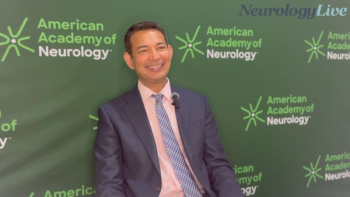
The professor of neuroscience at the Imperial College London discussed the emerging role of GLP-1 analogs as neuroprotective agents with potential benefits in neurodegenerative conditions. [WATCH TIME: 4 minutes]
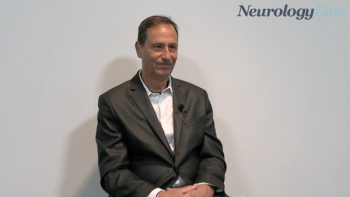
The director of the UCLA Goldberg Migraine Program discussed the advantages, evidence base, and evolving payor support for CGRP-targeting therapies as potentially a first-line option in migraine prevention. [WATCH TIME: 5 minutes]
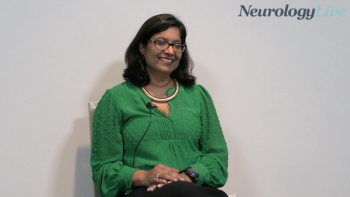
The clinical professor of stroke neurology and neurocritical care at Stanford University advocated for early and intensive blood pressure reduction in patients with intracerebral hemorrhage to limit hematoma expansion and improve outcomes. [WATCH TIME: 5 minutes]

The ENABLE phase 4 study will evaluate the real-world safety, efficacy, and patient experience of ublituximab in relapsing multiple sclerosis over a 96-week period.
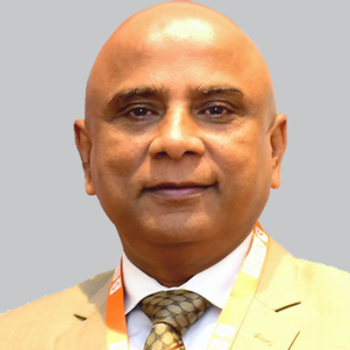
Presented at the 2025 AAN Annual Meeting, findings from a phase 3 study showed that a single 30 mg/kg dose of ANX005 significantly improved health outcomes in Guillain-Barré syndrome, with benefits seen as early as week 1 and sustained over 6 months.

Findings showed that atogepant 60 mg once daily demonstrated significant improvements in functional outcomes for patients with episodic migraine, compared with placebo, over 12 weeks.

Long-term data from a phase 2 study extension suggest that frexalimab, a CD40L inhibitor, maintains disease control and is well-tolerated in relapsing multiple sclerosis, reinforcing its potential as a next-generation treatment.

A recent post hoc analysis of the REST-ON trial reported that once-nightly sodium oxybate did not worsen the apnea-hypopnea index in individuals with narcolepsy with no or mild sleep apnea.
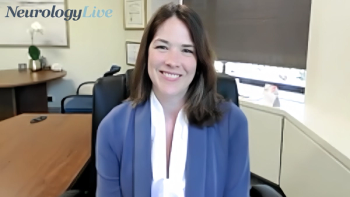
The professor and chair of neurology at New York Medical College discussed her extensive involvement in neurology education and the recent efforts to enhance neurology education through various programs. [WATCH TIME: 5 minutes]

Mind Moments®, a podcast from NeurologyLive®, brings you an interview with Katherine Peters, PhD. [LISTEN TIME: 13 minutes]

Scott Newsome, DO, director of the Stiff Person Syndrome Center and professor of neurology at Johns Hopkins Medicine, provided clarity on the 1-year data of the OCARINA II study assessing subcutaneous ocrelizumab.

A trio of clinicians from Cleveland Clinic provided perspectives on the advances in neurology seen at the 2024 AAN Annual Meeting, specifically focusing in on epilepsy, stroke, and multiple sclerosis.

The neurologist and neuro-oncologist at the Preston Robert Tisch Brain Tumor Center at Duke University provided clarity on a new analysis of the INDIGO study highlighting treatment benefits of vorasidenib in patients with IDH mutant grade 2 gliomas.

Frederic Schaper, MD, PhD, an instructor in neurology at Brigham and Women's Hospital, discussed the complex interplay between brain lesions and takotsubo syndrome, a heart condition caused by physical and emotional triggers.

Susan W. Broner, MD, the medical director of the Weill Cornell Medicine Headache Program, talked about the essentials of diagnosing and treating various headache disorders from a general neurology perspective.

Sean Pittock, MD, director of the Mayo Clinic Center for Multiple Sclerosis and Autoimmune Neurology detailed interim data from the open-label extension of the pivotal CHAMPION-NMOSD trial, the study that led to ravulizumab’s approval.

The director of the MedStar Georgetown Headache Center talked about results from an analysis on the DELIVER study assessing response rates of eptinezumab in patients with migraine over an 18-month period.

Lindsey Lee Lair, MD, a neurologist and vice president of clinical development at Biohaven Pharmaceuticals, provided insight on an ongoing pivotal trial assessing the impacts of taldefgrobep alfa, a myostatin inhibitor, in patients with SMA.

The director of the Alzheimer's Disease Care, Research and Education Program at the University of Rochester discussed treatment response and safety findings from the phase 3 ACCORD study assessing AXS-05 for agitation in Alzheimer disease. [WATCH TIME: 6 minutes]
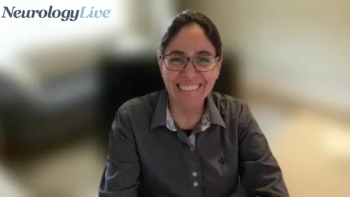
The neurologist at Mass General Hospital discussed adopting AI technologies in neurology practice, emphasizing the importance of addressing equity concerns alongside technological advancements. [WATCH TIME: 5 minutes]
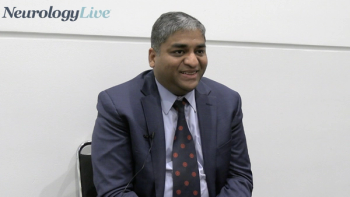
The director of the PET Imaging Program in Neurologic Diseases at Brigham and Women’s Hospital talked about nasal administration of foralumab that shows promise in treating patients with non-active secondary progressive MS. [WATCH TIME: 5 minutes]

The associate director, Patient Reported Outcomes, Johnson & Johnson, provided clarity on a poster presentation from AAN 2024 examining the most critical aspects to CIDP disease severity.
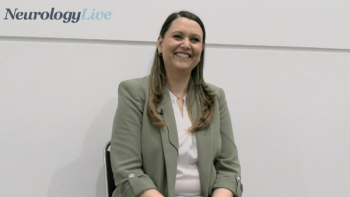
The director of the MedStar Georgetown Headache Center discussed the importance of maintaining hope and providing understanding of patients' frustrations in their treatment journey for migraine. [WATCH TIME: 5 minutes]
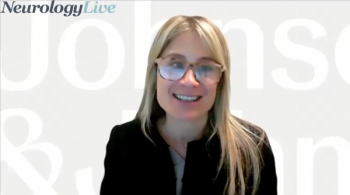
The vice president, Autoantibody Portfolio and Maternal Fetal Immunology Disease Area Leader, Johnson & Johnson, provided perspective on the unique molecular structure of nipocalimab seen across nonclinical and clinical studies. [WATCH TIME: 3 minutes]
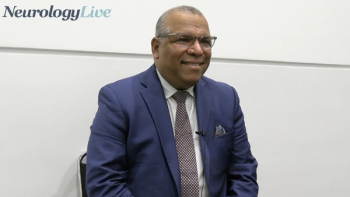
The chief of the Division of MS and Neuroimmunology at UConn Health talked about the challenges with access to care in multiple sclerosis, particularly for marginalized communities, despite significant progress made in the field over the past decades. [WATCH TIME: 4 minutes]
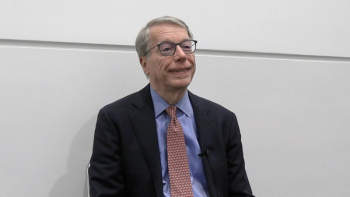
The associate chair for technology and innovation at the NYU Grossman School of Medicine provided commentary on a study from AAN 2024 that examined the driving factors behind burnout in neurology departments. [WATCH TIME: 4 minutes]

Tanisha Hill-Jarrett, PhD, an assistant professor of neurology at the University of California, San Francisco Memory and Aging Center, discussed the change needed to improve cognitive decline rates in Black women in disadvantaged neighborhoods.
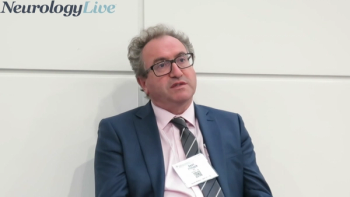
The director for the Mayo Clinic Center for Multiple Sclerosis and Autoimmune Neurology provided an overview of the open-label extension of the phase 3 CHAMPION-NMOSD trial and how the newly approved ravulizumab fits with other NMOSD treatments. [WATCH TIME: 4 minutes]

The neurologist at Mass General Hospital talked about leveraging artificial intelligence to enhance clinical practice amidst growing demands and workforce shortages in neurology. [WATCH TIME: 4 minutes]